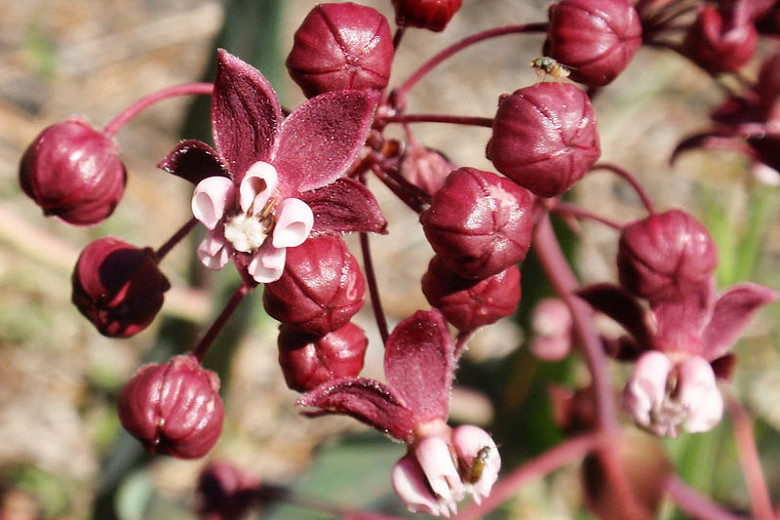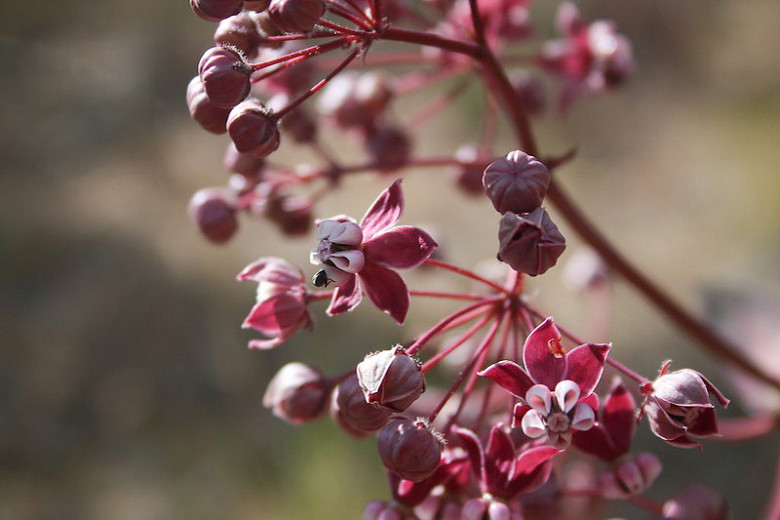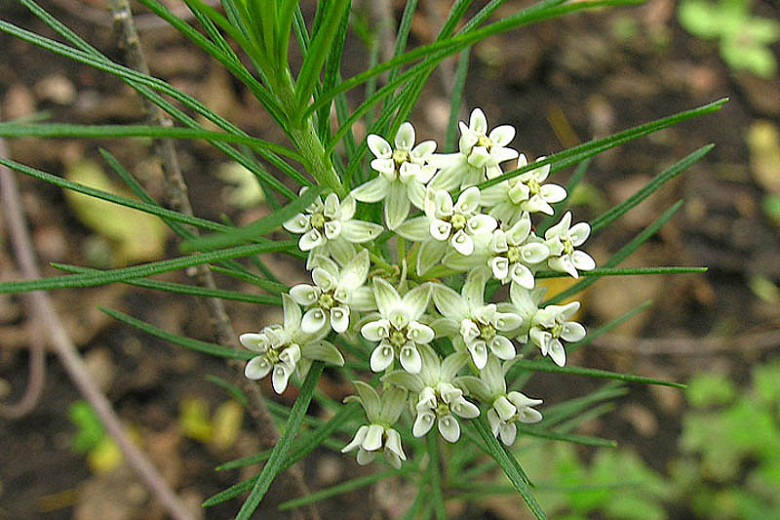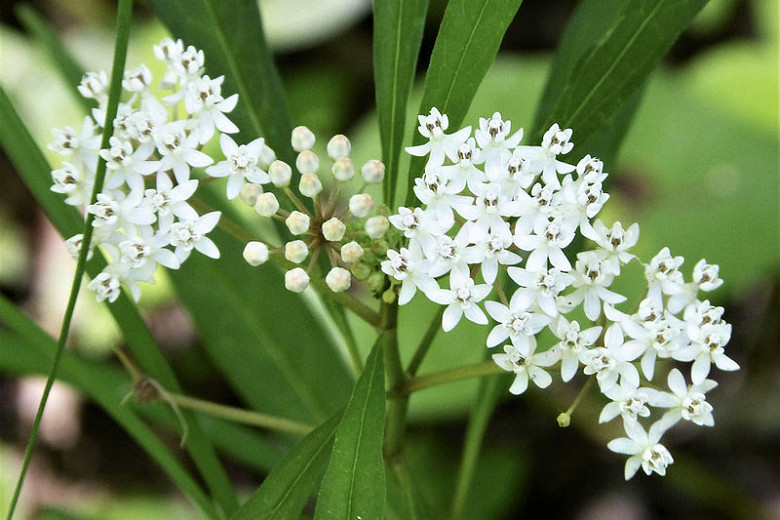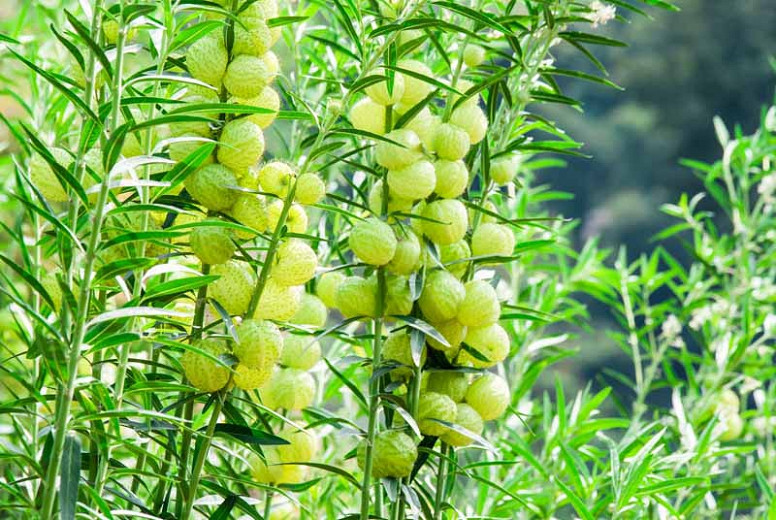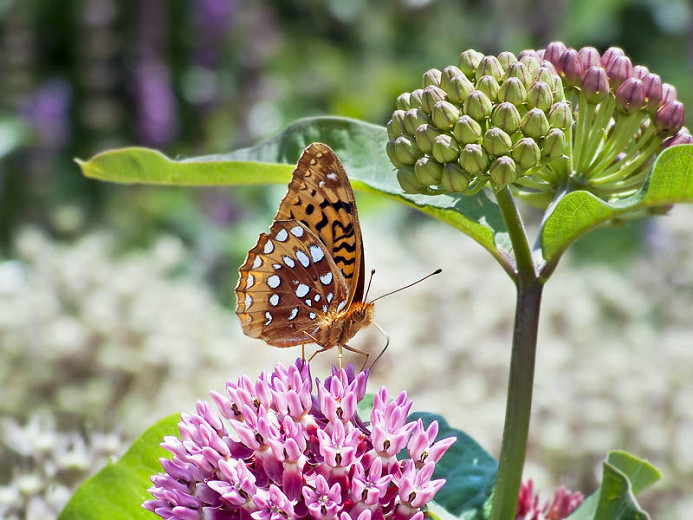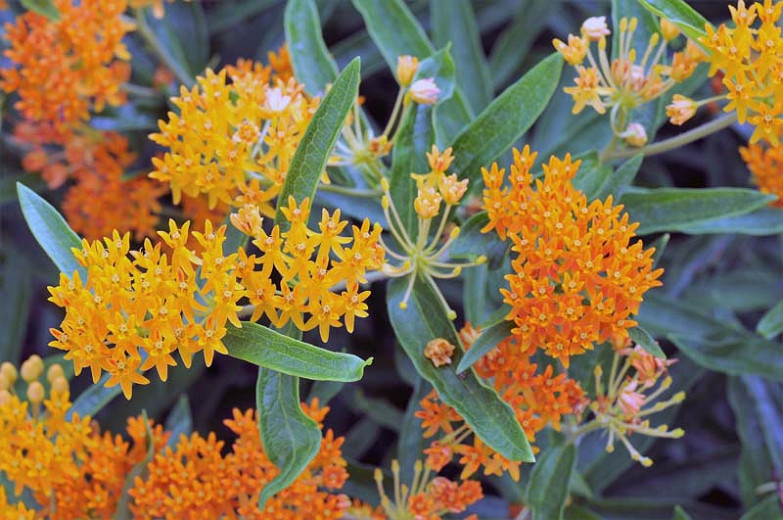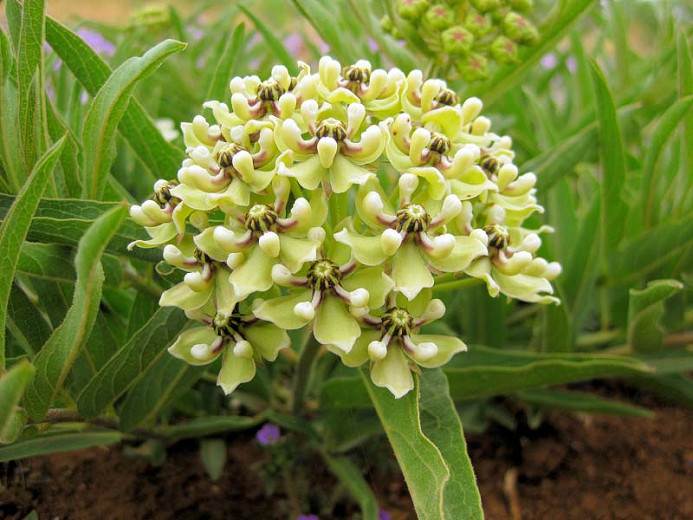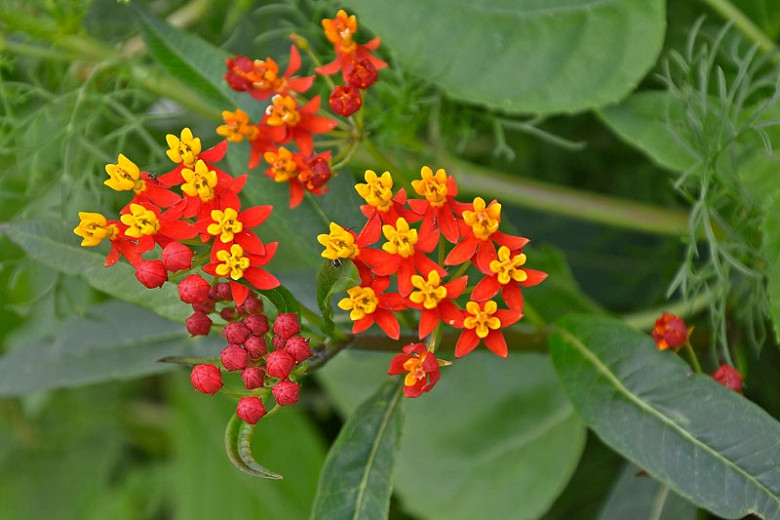Asclepias cordifolia (Heartleaf Milkweed)
Asclepias cordifolia (Heartleaf Milkweed) is a perennial wildflower prized for its spreading umbels of dark pink to dark purple flowers produced from late spring to mid-summer. Borne on individual pedicels, the flowers weep downward, resembling small fireworks. They attract pollinators and their nectar supports beneficial insects that are natural predators of many crop pests. They are followed by beautiful elongated seed pods. The large opposite leaves are heart-shaped and their waxy coating gives them a frosted appearance. Monarch butterfly caterpillars eat the leaves, which contain alkaloids that cause the butterfly to be unpalatable to predators. During the fall, each seed pod splits open to release many flat seeds with silky hairs. Native to the western United States, Heartleaf Milkweed grows in dry, rocky areas in woodlands, chaparral, and evergreen forest. Heartleaf Milkweed blooms in its second year. It is a great choice for the butterfly garden and for natural settings.
Requirements
| Hardiness | 7 – 10 |
|---|---|
| Plant Type | Perennials |
| Plant Family | Asclepias |
| Exposure | Full Sun, Partial Sun |
| Season of Interest | Spring (Late)Summer (Early,Mid) |
| Height | 1' – 2' (30cm – 60cm) |
| Water Needs | Low |
| Maintenance | Low |
| Soil Type | Loam, Sand |
| Soil pH | Acid, Alkaline, Neutral |
| Soil Drainage | Well-Drained |
| Characteristics | Showy |
| Native Plants | United States, California, Pacific Northwest, Oregon, Southwest, Nevada |
| Tolerance | Deer, Rocky Soil |
| Attracts | Birds, Butterflies |
| Garden Uses | Beds and Borders |
| Garden Styles | Informal and Cottage, Prairie and Meadow |
